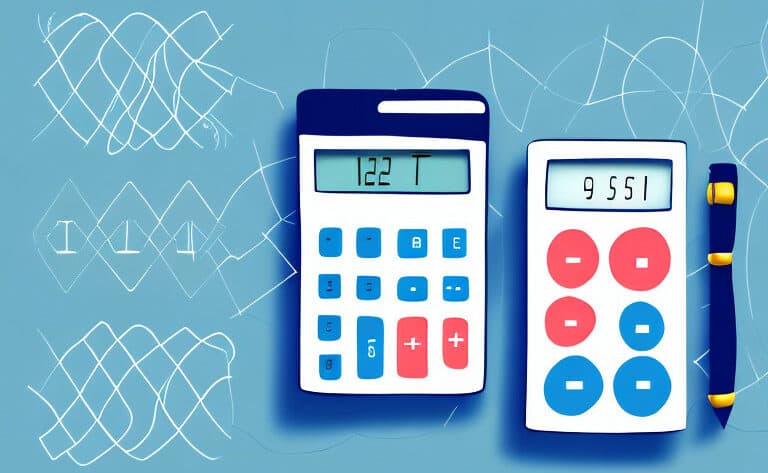If you’re looking to lose weight, the first step is to set realistic goals. However, determining what is realistic can be a challenge. That’s where a weight loss calculator comes in. With just a few clicks, you can get a better understanding of where you’re at and what you need to do to achieve your goals.
Understanding Weight Loss Goals
Before you start using a weight loss calculator, it’s important to understand what goes into setting weight loss goals. The process is about more than just picking a number and trying to hit it.
Weight loss goals are personal to each individual. They depend on various factors such as age, gender, lifestyle, genetics, and health conditions. Therefore, it’s important to set realistic goals that are achievable and sustainable in the long run.
The Importance of Setting Realistic Goals
Realistic goals are key to weight loss success. If you set a goal that is too aggressive, you’re setting yourself up for failure. It’s essential to consider factors such as your health, activity level, and weight loss history when determining what is realistic for you.
For instance, if you’ve never exercised before, setting a goal of working out for an hour every day might be too ambitious. It’s better to start with smaller goals such as walking for 30 minutes a day and gradually increasing the intensity and duration of your workouts as you get fitter.
Similarly, if you have a medical condition that affects your metabolism or mobility, it’s important to consult a healthcare professional before setting weight loss goals. They can help you determine what is safe and realistic for your condition.
Factors to Consider When Setting Weight Loss Goals
Some factors to consider when setting weight loss goals include your current weight, your desired weight, how quickly you want to lose weight, and your overall health. Taking a holistic approach to goal-setting will help you achieve long-term success.
For example, if you have a BMI (body mass index) of 30 or higher, you may need to lose a significant amount of weight to improve your health. However, losing too much weight too quickly can be harmful to your body. Therefore, a realistic goal would be to lose 1-2 pounds per week, which is a safe and sustainable rate of weight loss.
Moreover, it’s important to focus on non-scale victories as well, such as improved energy levels, better sleep quality, and increased strength and flexibility. These achievements can motivate you to keep going and make healthy habits a part of your lifestyle.
In conclusion, setting realistic weight loss goals is crucial for success. By considering your circumstances and taking a holistic approach, you can achieve your desired weight loss and improve your overall health and well-being.
Introducing the Weight Loss Calculator
Are you struggling to lose weight? Do you find it hard to keep track of your progress and stay motivated? With so many weight loss programs and diets out there, it can be overwhelming to figure out what works best for you. That’s where our weight loss calculator comes in!
Our weight loss calculator is a powerful tool that takes into account various factors such as your age, gender, height, current weight, desired weight, and activity level. By inputting this information, our calculator provides you with a customized plan to reach your weight loss goals healthily and sustainably.
How the Calculator Works
The weight loss calculator uses a complex algorithm to analyze your data and provide you with a personalized roadmap for achieving your target weight. It takes into account your basal metabolic rate (BMR), which is the number of calories your body burns at rest. It also considers your daily activity level, which includes everything from walking to exercising.
Based on this information, the calculator generates a plan that includes the number of calories you should consume each day, as well as the amount of exercise you should do. The plan is designed to create a calorie deficit, which means you will burn more calories than you consume, leading to weight loss.
Benefits of Using a Weight Loss Calculator
Our easy-to-use calculator offers a range of benefits, including:
- Personalized weight loss goals: The calculator provides you with a realistic and achievable target weight based on your data.
- A customized plan tailored to your needs: The plan is designed specifically for you, taking into account your BMR and activity level.
- The ability to track your progress and adjust your goals along the way: You can input your weight and exercise data into the calculator to track your progress and adjust your plan as needed.
Using a weight loss calculator can be a game-changer for anyone looking to lose weight. It takes the guesswork out of the process and provides you with a clear and achievable plan for reaching your goals. So why wait? Try our weight loss calculator today and take the first step towards a healthier, happier you!
How to Use the Weight Loss Calculator
If you’re ready to start using our weight loss calculator, congratulations on taking the first step toward a healthier you! Losing weight can be a challenging journey, but with the right tools and support, you can achieve your goals. Follow these simple steps to get started:
Inputting Your Personal Information
The first step in using the calculator is to input your personal information. This includes your age, gender, height, and current weight. It’s important to be honest and accurate when entering your information, as this will ensure that the calculator provides you with the most personalized and effective weight loss plan possible.
Once you’ve entered your information, the calculator will use it to determine your current body mass index (BMI). Your BMI is a measure of your body fat based on your height and weight. It’s an important factor in determining your ideal weight and the number of calories you’ll need to consume each day to achieve your weight loss goals.
Interpreting the Results
After inputting your personal information, the weight loss calculator will provide you with a personalized weight loss plan. This plan will include your target weight and the number of calories you’ll need to consume each day to achieve your goal. Additionally, it will offer insights into when you can expect to reach your target weight based on your current rate of weight loss.
It’s important to keep in mind that weight loss is a gradual process and that everyone’s journey is unique. The weight loss calculator’s recommendations are based on general guidelines and may need to be adjusted based on your individual needs and preferences.
Adjusting Your Goals Based on the Calculator’s Recommendations
The weight loss calculator’s recommendations are just that—for recommendations. As you progress towards your goal, it’s important to re-evaluate and adjust your goals based on your progress and any new information you’ve learned about yourself and your body.
For example, you may find that the number of calories recommended by the calculator is too low or too high for your needs. Or, you may discover that you enjoy certain types of exercise more than others and want to adjust your fitness routine accordingly. Whatever adjustments you make, it’s important to stay focused on your goals and to keep making progress toward a healthier you.
In conclusion, using a weight loss calculator can be a helpful tool in achieving your weight loss goals. By inputting your personal information and interpreting the results, you can create a personalized weight loss plan that works for you. And by adjusting your goals based on the calculator’s recommendations, you can stay on track and make progress toward a healthier, happier you.
Tips for Achieving Your Weight Loss Goals
While using a weight loss calculator is a great way to get started, there are additional steps you can take to increase your chances of success.
Incorporating a Balanced Diet
A healthy diet is key to weight loss success. Focus on incorporating lean protein, healthy fats, and plenty of fruits and vegetables into your meal plan. Stick to whole, unprocessed foods as much as possible and avoid sugary or processed snacks.
Implementing an Effective Exercise Routine
Along with a healthy diet, exercise is essential for weight loss success. Aim for at least 30 minutes of moderate activity each day, whether that’s going for a walk, hitting the gym, or taking a fitness class.
Tracking Your Progress and Staying Motivated
Finally, tracking your progress and staying motivated are critical components of weight loss success. Use a food journal, monitor your weight loss with regular weigh-ins, and celebrate your successes along the way. Don’t be too hard on yourself if you experience setbacks—remember that every journey has ups and downs.
Frequently Asked Questions about Weight Loss Calculators
How Accurate Are Weight Loss Calculators?
Weight loss calculators provide a good starting point for determining weight loss goals, but they’re not perfect. They can’t take into account every factor that might affect your weight loss journey, such as underlying health conditions or hormonal imbalances. However, they’re useful tools and can help you establish realistic goals.
Can I Use the Calculator If I Have a Medical Condition?
While our weight loss calculator is designed to be safe for most individuals, it’s always a good idea to consult with a healthcare professional before embarking on a new weight loss program, especially if you have a medical condition.
How Often Should I Recalculate My Goals?
Your goals will change as your body changes. It’s a good idea to re-evaluate your goals every few weeks or monthly, adjusting as necessary to ensure you’re on track for long-term weight loss success.
With the right tools, mindset, and dedication, achieving your weight loss goals is within reach. Use our easy-to-use weight loss calculator to get started on your journey today!
“The information provided on this website is intended for general informational purposes only and should not be considered as medical advice. It is important to always consult with a qualified healthcare professional regarding any medical conditions, symptoms, or concerns you may have. This website does not provide medical diagnosis, treatment, or advice, and reliance on any information provided on this site is solely at your own risk.”




